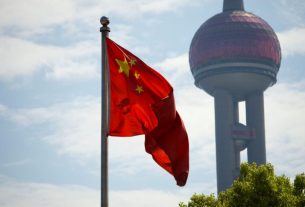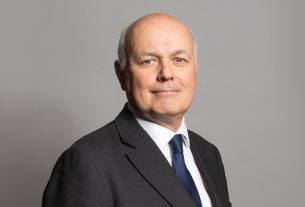The UK is heading to the polls on Thursday to elect 650 new members to the House of Commons, with opinion polls showing that Labour could win by 20 percentage points, which is a huge increase in votes compared to the 2019 election.
In that election, Prime Minister Boris Johnson secured a strong Conservative majority by winning over Labour strongholds in Northern England and the Midlands, clinching a mandate to “get Brexit done.”
Since formally exiting the European Union, the Conservatives have faced many challenges. Labour, led by Sir Keir Starmer, hopes to regain the pro-Brexit voters lost in 2019.
Meanwhile, Prime Minister Rishi Sunak’s Conservative party faces the possibility of its worst electoral defeat in 200 years. Some polls suggest Labour could achieve a majority of over 200 seats, making Starmer the next prime minister with the largest post-war government majority.
The Conservatives, who have governed for 14 years under five different leaders, have seen declining support since 2021 due to scandals like the lockdown-breaking parties at 10 Downing Street under Johnson.
His successor, Liz Truss, had a brief and unsuccessful tenure, with her ‘mini-budget’ causing the pound to plummet. Sunak, a former investment banker, has struggled to convince voters he can revive the UK’s economy.
Key campaign issues include the economy, housing, the NHS, and migration. Sunak’s controversial plan to deport asylum seekers to Rwanda, conditional on his re-election, has faced backlash and a Supreme Court ruling deeming it unlawful. Despite no flights having taken off, Sunak continues to push the plan.
Labour’s manifesto focuses on tackling the cost-of-living crisis, reducing NHS waiting lists, building 300,000 homes annually, and investing in green technologies. Starmer has also vowed to crack down on human smugglers and reduce net migration, though without setting specific targets.
The election could also see Nigel Farage, former MEP and Brexit activist, make his eighth bid for an MP seat with Reform UK. Farage’s announcement to run in Clacton, Essex, saw a surge in support for his party, though his controversial comments on Russia’s invasion of Ukraine have caused a dip in support.
Reform UK advocates for a freeze on non-essential immigration, scrapping net-zero targets, and leaving the European Convention on Human Rights.
The Liberal Democrats, who faced heavy losses in the previous election, hope to make a comeback with a pro-European Union stance. They propose gradual integration into European programs and eventually the EU single market, with re-joining the bloc as their ultimate long-term goal.
As the election approaches, the stakes are high, with Labour poised for a significant victory and the Conservatives facing potential electoral devastation.




